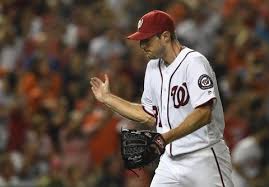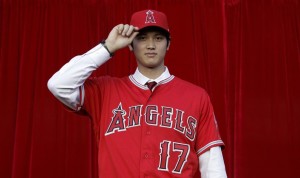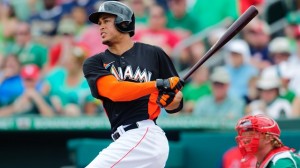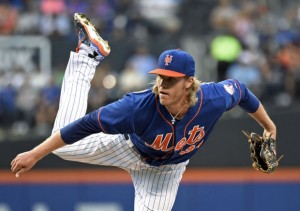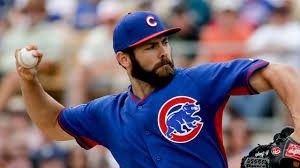Every off-season I find myself meticulously tracking Starting pitching movement, with a working XLS that attempts to quantify the rank of every rotation in the majors.
Before we get too further into the pre-season, and these ranks start to get obsoleted as we find out that some starters are going to head into surgery or to the DL, i wanted to get this out there.
Previous years of doing this
- 2019 Cubs #1, Nats #4. Probably overvalued Cubs, undervalued the Dodgers, Rays and Astros.
- 2018: did not do the analysis, but Houston led the league in ERA, FIP, fWAR
- 2017: Cubs #1, Mets #2. Cleveland and LA Dodgers really the best.
- 2016: Mets #1, Cardinals #2. Mets and Nats ended up being the best on the season.
- 2015: did not do the post. Cubs, Nats, Dodgers the best.
- 2014: Cards #1. Nats ended up being the best rotation by most measures.
- 2013: Nats #1, Tigers #2. In the end, Detroit really was the best rotation.
Here’s my rankings of the Starting Rotations of every team in the majors.
Raw data, which includes a ton more detail including movement, starters still out there, and color coding indicating whether i think a pitcher is a #1, a #2, a #3 or lower is here: https://docs.google.com/spreadsheets/d/1gztFB_MIkVLd-Bzw9SuSYJxE709eHOPAsAZL8nzsiPw/edit?usp=sharing
Notes: i have these roughly grouped for discussion. Each of these groups of rotations are in the correct order, but are relatively close enough that if you wanted to argue within the grouping I wouldn’t probably push back too much, but i’d put any of the teams in one group ahead of any team in the next group.
1. Washington: Max Scherzer Stephen Strasburg Patrick Corbin Anibal Sanchez Joe Ross
2. Texas: Corey Kluber Lance Lynn Mike Minor Kyle Gibson Jordan Lyles
3. Los Angeles Dodgers: Clayton Kershaw Walker Buehler David Price Julio Urias Alex Wood
4. New York Mets; Jacob deGrom Noah Syndergaard Marcus Stroman Steven Matz Rick Porcello
Yes, i’ve got our home team #1. I think the top 3 are all three Aces (meaning, they’re all among the top 15-20 arms in the league), and the Nats are the only team that can make that claim. Texas has completely remade their rotation, adding an ace in Kluber, adding the back-end of their rotation via FA this off-season and I really think they’re in a position to make some noise. LA comes in third, and yes I still have Kershaw as an “Ace” for now, but Buehler is probably the best arm of the bunch. the Mets are a speculative #4; is Snydergaard really an Ace? What happened to him last year? If he returns to form, the NL East becomes that much more difficult to navigate for all the teams involved.
—
5. Tampa Bay: Blake Snell Charlie Morton Tyler Glasnow Yonny Chirinos Ryan Yarbrough
6. Houston: Justin Verlander Zack Greinke Lance McCullers Jose Urquidy Rogelio Armentos
7. Philadelphia: Zack Wheeler Aaron Nola Jake Arrieta Zach Eflin Vincent Velasquez
8. Cincinnati: Sonny Grey Luis Castillo Anthony DeSclafani Trevor Bauer Wade Miley
9. Atlanta: Mike Soroka, Mike Foltynewicz, Cole Hamels, Max Fried, Kyle Wright
Tampa is a hard one to rate, b/c of their use of the “Opener” so much. Houston takes a hit by letting Cole go and replacing him with someone who I couldn’t pick out of a lineup. I think Cincinnati’s rotation may prove to look quite mediocre if Grey and Bauer in particular don’t produce. Atlanta has five talented guys who all could step up and make them really tough to beat, so watch out.
——
10. Oakland: Sean Manaea Frankie Montas Mike Fiers Jesus Luzardo Chris Bassitt
11. St. Louis: Jack Flaherty Dakota Hudson Miles Mikolas Adam Wainwright Kwang-Hyun Kim
12. New York Yankees: Gerritt Cole Luis Severino Masahiro Tanaka J.A. Happ Domingo German
13. Toronto: Hyung-Jin Ryu Chase Anderson Matt Shoemaker Tanner Roark Shun Yamaguchi
14. Minnesota: Jake Odorizzi Jose Berrios Kenta Maeda Homer Bailey Randy Dobnak
15. San Diego: Chris Paddock Garrett Richards Drew Pomeranz Zach Davies Dinelson Lamet
16. Cleveland: Mike Clevinger Shane Bieber Carlos Carrasco Aaron Civale Adam Plutko
Oakland could look a lot better fast if Luzardo lives up to his #2 starter hype. Its also noteworthy that no matter where you rank Oakland’s rotation pre-season, they produce. I think i had them in the bottom five last year and they won 97 games with a bunch of #4 starters. So who knows. The Yankees are #12, which also seems amazing for a 103 win team that ADDED perhaps the best right hander in the game … but they fall off fast AND they seem to have lost Severino for the season (which is not accounted for here), so they may be actually worse. Toronto’s got 3 new starters and some unknowns: is Ryu going to be an Ace or a 4th? Cleveland is the lowest team with an “Ace” in the rotation
—–
17. Arizona: Robbie Ray Luke Weaver Mike Leake Merrill Kelly Alex Young
18. Milwaukee: Brandon Woodruff Adrian Houser Brett Anderson Freddy Peralta Eric Lauer
19. Chicago Cubs: Kyle Hendricks Yu Darvish Jon Lester Jose Quintana Alec Mills
20. Boston: Chris Sale Eduardo Rodriguez Nathan Eovaldi Martin Perez Matt Hall
21. Chicago White Sox: Lucas Giolito Dallas Keuchel Reynaldo Lopez Carson Fulmer Gio Gonzalez
22. Colorado: Jon Grey German Marquez Kyle Freeland Antonio Senzelata Jeff Hoffman
23. San Francisco: Jeff Samardzija Johnny Cueto Tyler Beede Kevin Gausmann Drew Smyly
24. Los Angeles Angels: Shohei Ohtani Julio Teheran Jamie Barria Andrew Heaney Dylan Bundy
this is a logical stopping point (the #24 ranked Angels) because this is clearly the end of teams that are “trying” in 2020. And you might push back on the notion that some of these teams are even trying (Boston, SF, etc). Its still kind of amazing to me that the White Sox are ranked this low, given the pedigree of their prospect-laden rotation and the fact that they added a recent cy Young winner in Keuchel this past off-season. Boston takes a hit as we hear that Sale may start the season on the DL. Lastly what to make of LAA? Is Ohtani goign to compete and be an ace? If not they need production from a bunch of #5 starters or else they waste even more of Trout (and now Rendon‘s) careers.
—-
25. Seattle: Marco GonzalesYusei Kikuchi Justus SheffieldKendall GravemanJustin Dunn
26. Pittsburgh: Chris Archer Joe Musgrove Steven Brault Trevor Williams Mitch Keller
27. Kansas City: Danny DuffyBrad KellerJake JunisMike MontgomeryJesse Hahn
28. Detroit: Matt Boyd Jordan Zimmermann Daniel Norris Spencer Turnbull Ivan Nova
29. Baltimore: John Means Alex Cobb Asher Wojciechowski Dean Kremer David Hess
30. Miami: Sandy Alcantara Caleb Smith Jose Urena Jordan Yamamoto Pablo Lopez
All 6 of these teams i have as actively “tanking” in 2020, so not surprisingly they’re the bottom 6 rotations. A couple of these rotations don’t even have what i would consider even a #3 starter, and among all 6 of these teams I only see two acquisitions this off-season that project into their rotations. Miami, the lowest ranked rotation, made its sole starting pitching acquisition of the off-season a rule-5 drafting of our own former prospect Sterling Sharp, which is pretty telling. Baltimore has added a bunch of depth but it all projects as just that; depth. 4-A or minor league starter depth.
———
That’s it. What do you think?
